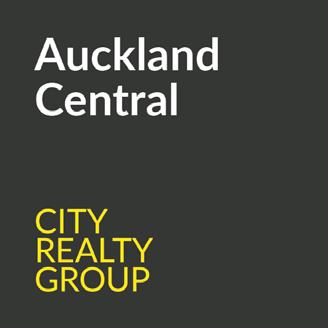Auckland Central Market Report.


Part of the group with a family factor.




Part of the group with a family factor.


04. Market CommentPositive signs on a roll
06. Article – Catherine Smith: Marry a home, date the interest rate!’
08. Auckland Central Statistics June 2023
10. Recent Sales June 2023
12. Auction Statistics & Update with Cameron Brain
14. Article – Diana Clement: Inflation at 6%: Should homeowners be celebrating or worrying about another rate rise?
16. Property Management Market Comment
18. LoanMarket Update
20. Marketing your property
22. Ray White Auckland Central Meet the team



“The latest figures from the Real Estate Institute of New Zealand (REINZ) for May 2023 indicate encouraging developments, following the Reserve Bank’s announcement of relaxed loan-to-value restrictions and stabilising interest rates,” reports Director of City Realty Group, Daniel Horrobin.
Daniel goes on to say “Although the total number of properties sold across New Zealand saw a slight year-on-year decline of 0.4%, there was a remarkable 30.0% increase in sales volumes compared to the previous month. In Auckland, sales volumes were down by only 4.2% year-onyear, but the month-on-month surge of 37.8% indicated a notable recovery reflecting a growing confidence among buyers.”
“Our own Auckland Central office, now comfortably housed in our smart new premises at 246 Queen St, for June enjoyed our best month of sales activity for at least a year,” reports a delighted Daniel.
“Our auction floor is a barometer of the larger market and June saw 81% of the 16 properties in total sold with 51 bidders and over 200 bids taken”. This despite stock levels in Auckland of residential properties for sale decreasing by 9.1% compared to the same period last year, leading to a reduction in available options for buyers.
“Our Auckland central apartment market reflects the same trend with an end of June total of 520 CBD apartments appearing for sale on Trade-me. Compare this to 724 a year ago in May 2022 and that is a 30% drop in available properties,” says Daniel.
On a positive note, buyer sentiment is shifting positively, as revealed in a monthly survey conducted by Tony Alexander in collaboration with REINZ. A net 55% of residential real estate agents reported an increase in first home buyers entering the market, the highest reading since the beginning of 2021. Additionally, a net 32% of agents noted an increase in the number of people attending open homes, another positive trend not seen since early 2021. Furthermore, concerns about falling prices are easing, with 49% of agents observing fear of overpaying, compared to 60% – 70% in early 2022. Further good news is that, on the back of the
announcement by the Reserve Bank of a flat official cash rate of 5.5% for the foreseeable future, it appears that mortgage rates have likely reached their peak. Lending data also indicates a trend of borrowers opting for shorter fixed-term periods, reflecting an expectation of rate falls over the next 2-3 years.
“There is still some pain for some as mortgage fixed terms end and the resulting new interest rates compound with inflation pressures,” warns Daniel.
The rapid growth in New Zealand’s population is another significant factor impacting the housing market. Net migration for the year up to April shows a gain of 72,300 individuals, surpassing the previous migration peak experienced last decade. Projections suggest a net gain of 95,000 to 100,000 individuals this year, contributing to the stabilising and subsequent upward pressure on property prices. Further to that, to quote Tony Alexander: “proportionately more immigrants will settle in Auckland than the rest of the country”. This is resulting in further demand on an already tight rental property market, in particular in Auckland where rental listings are down 36% year on year placing upward pressure on rents.
The median weekly rent In Auckland has increased by 8.3% year on year with apartments seeing the biggest increase of 12% year on year.
“In a nutshell” says Daniel “the forecast is cautiously optimistic with several positive factors contributing to this sentiment. These factors include stabilising prices, heightened buyer activity, the peaking of mortgage rates, the strength of the job market, a surge in migration, and the easing of credit conditions, such as loanto-value ratios (LVRs).”
“We still have an election to navigate” adds Daniel. “It is anybody’s guess what will happen in that space.”
House prices and sales are up in country’s biggest housing market.
The latest figures from the Real Estate Institute of New Zealand suggest Auckland’s housing market is on the road to recovery.
Auckland’s median sale price for June was up 0.8% month-on-month to $1 million, and while that may not seem like much, prices in the country’s biggest housing market have been relatively stable since February this year.
That suggests the downturn – which saw Auckland prices tumble more than 20% since market peak in November 2021 – is at an end.

A look at prices in the city’s former local
authority areas shows a stronger revival in Auckland City (up 5.9% month-on-month to $1.08m) and the North Shore (up 5.5% to $1.203m).
Sales in Auckland are also up – 1.9% month-on-month and 9.3% year-on-year.
The uptick is no surprise to the city’s real estate agents.
Martin Cooper, managing director of Harcourts Cooper & Co, which covers the North Shore and Rodney, says would-be buyers and sellers are now willing to act.
“First-home buyers are very active, and they’re the fuel for the market under $1.1m or $1.2m. In June they transitioned from fear of paying too much to FOMO [fear of missing out], so we’re seeing a return to enthusiasm to buy a property.”
Has Auckland’s Housing Market Hit The Bottom? The chart shows the monthly change in the median sale price for Auckland since Jan 2020. The downturn appear to be over, with the median sale price remaining relatively flat since the start of the this year. Also shown for comparison is the change in NZ’s median sale price.
Chart: OneRoof.co.nz Source: REINZ Get the data Created with Datawrapper

Cooper says the fall in new listings in Auckland, and uptick in prices and competition was a clear sign to vendors to list now. “If they wait until spring, then buyers will be spoilt for choice.”
Mark Bycroft, co-owner Ray White Epsom, says his office has seen an increase in big sales. “In June we sold a big spread of properties, from $1m to over $7m,” he says, adding that auctions were driving much of the activity – a trend borne out in REINZ’s figures, with 16% of Auckland’s June sales done under the hammer.
Ray White Epsom agent Ross Hawkins, whose highlights last month include a 1970s house on Remuera Road which sold under the hammer for $7.1m, says that high-end properties with visible marketing were proving themselves in this market.
“You can’t sell a secret. It’s not just about working your database as you need to bring in new [buyers] who are spending now. Auctions are the way to go, as the higher end is less affected. These people buy if they want something – they’ve got the money and they don’t mind spending it. The lower end is tougher.”
However, Hawkins and Bycroft are bracing for lower sales in July as their higher-end buyers head away for most of the month.
“Half of Auckland is at Coronet Peak, the other half is in Europe,” says Hawkins, from Queenstown.
Fellow Ray White Epsom agent Richard Thode told OneRoof his team closed 12 deals in June to the value of $18m. “It confirms there are more buyers in the market place,” he says.
The deals included new-build homes in Mount Roskill, Remuera and One Tree Hill, as well as properties in Mount Eden, St Johns, Epsom and Stonefields. “The newbuilds show that that market is coming back.”
However, agents were not quite ready to call whether the traditional spring uptick will emerge in August, and also have mixed
expectations about whether the traditional pre-election pause will happen.
“The people who wait [until after the election] may miss the boat, there’ll be FOMO and people will miss out again,” says Hawkins. He also expects that the reality of homeowners’ fixed term mortgages switching over in the next few months from 2% to 6.5% or a higher interest rate may push more vendors to sell their more expensive homes to trade down to smaller homes and more manageable mortgages.
On the North Shore, Cooper says his agents were reporting that for the first time in a few weeks, numbers at all open homes have increased and there were translating into sales.
“We are experiencing multiple bidders on homes and multiple offers. Enquiry from vendors looking to go on the market indicates confidence in the process and pricing achievable,” he says, adding that properties that don’t sell at auction now have multiple offers and that developers are back in the picture, not just first-home buyers.
Cooper says that buyers reckon interest rates have peaked and house prices have reached the bottom, and with low numbers of houses for sale, sellers are getting results.
“So it’s time to secure a home,” he points out, adding: “Marry a home and date the interest rate! You can always refinance. I firmly believe that the overall sentiment surrounding the real estate market is shifting towards a more positive outlook.”
He says one agent, David Ding, sold 10 properties in three weeks in June, while another, Terry Connell, inked three deals in just one week in July. “The OCR announcement last week, signalling that we were at the top of the interest rate cycle, reinforced the tides are truly turning.
“No doubt in future years people will be saying ‘I wish I had purchased in 2023’,” Cooper adds.

Total Sales
June 2023
71
June 2022
There was a -38% decrease in the total number of sales year on year.
June 2023
$315,000
June 2022
Total Sales Value
June 2023
$27,730,550
June 2022
116 $49,583,850
There was a -44% decrease in the total sales value year on year.
Source: REINZ
$290,050
There was a 8% increase in the total median sale price year on year.
June 2023
52.5
June 2022
42
There was a 25% increase in the total median days on market year on year.



As of June and heading into July, the Ray White Auckland Central Auctions have experienced a significant increase in buyer engagement and activity, indicating a positive trend in the real estate market. The average number of bidders per auction has shown a promising surge, rising from 1.9 from January to May to 2.6 in recent months.
One of the contributing factors to this boost in activity can be attributed to the encouraging figures observed in Open Home attendance. More potential buyers are showing interest in the properties on the market, resulting in a busier and more vibrant atmosphere at the Auction Rooms.
A notable development in the Auckland Central property market is the reduction in the number of apartments available for sale. The current inventory of apartments has dropped to the low 500s, representing a significant 30% decrease from the figures recorded 12 months ago. This scarcity of available apartments has resulted in heightened interest and competition among potential buyers, leading to strong activity in the properties available for sale.
Investors are capitalizing on the prevailing strength of the rental market, which is enticing them to venture into property acquisitions. The robust rental market has prompted investors to actively compete with first-home buyers and traders for the available properties in the Auckland Central area.

Overall, the market conditions in Auckland Central appear to be in favour of sellers due to increased buyer engagement, rising average bidder numbers, and decreased inventory levels. As we head further into the year, it will be crucial to monitor how these trends evolve and their impact on the property market dynamics. For now, buyers and investors alike are eagerly exploring opportunities in the thriving real estate landscape of Auckland Central.


Inflation is falling, but it may be too early for homeowners to pop the champagne corks, according to economists and property experts. Consumer price index [CPI] inflation figures for April to June released yesterday show that annual inflation has fallen to 6%. That’s down from 7.3% at the peak last year. The 6% figure sits smack bang in between what the Reserve Bank of New Zealand (RBNZ) was expecting at 6.1% and the consensus among banks of 5.9%, Opes Partners economist Ed McKnight told OneRoof. It matters because the RBNZ influences mortgage interest rates by setting the official cash rate (OCR). It raises the OCR as a tool to reduce inflation by restricting people’s spending money. Look beneath the surface and it appeared
Inflation was tracking down further, McKnight said. It rose 2.2% in the September 2022 quarter, but was down to 1.1% in the most recent quarter. By the end of September this year, last year’s numbers will have dropped off, which could see the annual figure fall below 5% year-on-year, McKnight said.

He added that the CPI is one of several data points all heading in the right direction for a return to growth in house prices. “That is where that confidence starts to build up both for property investors, and for firsthome buyers as well.”
The most recent quarter’s fall in inflation wasn’t in itself going to have a huge impact on the property market, he said. Lower inflation would, however, give homeowners
confidence that interest rates will fall eventually, and likely draw some buyers back into the market, he said.
CoreLogic chief economist Kelvin Davidson told OneRoof he didn’t believe the Reserve Bank would be swayed either way by the latest inflation data when it next reviews the OCR on August 16. The OCR was kept on hold at 5.5% last week and most bank economists bar the ANZ expect it has peaked.
“In the housing market, it does look like the turning point’s here,” Davidson said. “But just because mortgage rates have peaked, it doesn’t necessarily mean rates are suddenly going to fall and house prices are suddenly going to rise. We’re not going to see the OCR come down for nine or 12 months. The [Reserve Bank’s] inflation target is 1-3%, and it’s going to be a while till we get back to that target. So mortgage rates are going to be higher for longer.”

Davidson said although there may not be more house price falls, it was unlikely there will be a rapid bounce back either.
Westpac senior economist Satish Ranchhod said in his reaction to the CPI number that while inflation was lower, simmering underlying price pressures mean that it was unlikely to return to within the Reserve
Bank’s target range of 1-3% any time soon. What’s more, the fall in CPI was largely down to a drop in fuel prices of 15% yearon-year. Other prices weren’t coming down as fast as the Reserve Bank would want.
Chris Farhi, head of insights, data and consulting at Bayleys, told OneRoof it was good that CPI inflation is tracking down because that will translate into less need for the Reserve Bank to raise the OCR and/ or banks to raise mortgage interest rates. “It’s not amazing news if you’re hoping for interest rates to go down. It is great news, if you are concerned about them going up,” he said.
Farhi added: “A year ago there was real concern that we didn’t have clarity on interest rates and that they were going to go wildly out of control. Now we’re getting a sense that things are starting to get back in order. Although the annual [inflation] rate is 6%, if you look at the quarterly statistic it’s 1.1%. Multiply that by four quarters, and that shows that we’re probably going to see the annual rate track down further, which is good.”
At the same time, said Farhi, there was evidence that the housing market is starting to get to a point of stabilising and potentially recovering from later this year.



The Rental market continues to be strong, driven by low levels of supply compared to demand leading to an increase in rents year on year.
We are continuing to get good numbers at our viewings with both apartments and residential houses often renting at the first viewings for higher than usual rents for this time of the year.
Recent reports show that the average rent in Auckland rose $60 per week to $660 in May, claiming the title of the region with the highest median weekly rental price.
Supply of rental properties in the Auckland region saw a 35 per cent drop from last year, while demand was up 55 per cent year-on-year.
The reason for this trend is high immigration numbers which are currently sitting at preCovid levels and the impact from the Auckland
floods which put pressure on the supply of rental properties.
Auckland’s urban properties - apartments, townhouses and units - all hit record median weekly rental prices in May. Apartments are sitting at $570 per week, units are $530, and townhouses are $700.
The reason for this is due to an increase in rents across the board making people require cheaper rental options.
Auckland’s urban propertiesapartments, townhouses and units - all hit record median weekly rental prices in May. Apartments are sitting at $570 per week, units are $530, and townhouses are $700.
Delanie Horrobin.Things you should know before refinancing.
Mortgage refinancing involves repaying your current mortgage and taking out a new loan with different terms, usually with the goal of obtaining better conditions. This can involve working with your existing lender or switching to a new one, depending on which offers the most favourable terms.
Refinancing is often confused with other mortgage adjustments, such as refixing and restructuring:
Refixing
Is the process of securing a new interest rate for a specific period, typically when your current fixed rate term is ending.
Involves reviewing the terms of your existing mortgage and making changes to better suit your current financial situation, such as switching between fixed and variable rates or offsetting your loan against your savings or everyday account.

> Reasons to Refinance Your Mortgage.
There are various reasons why homeowners choose to refinance their mortgage. Some of the most common motivations include:
Reduced monthly payments: By extending the loan term or securing a lower interest rate, refinancing can help lower your loan payments, providing more financial flexibility.
Debt consolidation:
If you have high-interest debt, such as credit card balances or personal loans, refinancing your mortgage to consolidate these debts can save you money and simplify your finances.
Accessing equity:
Refinancing can allow you to tap into your home’s equity for various purposes, such as home renovations, education expenses, or investments.
Before considering refinancing, it’s essential to evaluate your current mortgage to determine whether it’s meeting your needs:
Interest rate: Check if you are paying a competitive interest rate since you first obtained your mortgage.
Loan term: Is the length of your mortgage term appropriate for your financial situation, or would you benefit from extending or shortening the term?
Repayment flexibility: Does your current mortgage allow for extra repayments, lump sum payments, or other flexible repayment options that suit your financial goals?
Timing is crucial when it comes to refinancing your mortgage. Here are some factors to consider when determining the best time to refinance:
Interest rate environment:
Keep an eye on market trends and consider refinancing when you are about to come off a fixed term to see if you can obtain a better rate with another Lender.
Credit score improvements:
If you are with a non-bank lender for reasons to do with your credit score and it has improved since you first obtained your mortgage, you may qualify for better loan terms with a mainstream lender.
Changes in financial circumstances:
Major life events or changes in your financial situation such as a salary increase, windfall or expanding family, may warrant refinancing to better align with your needs. Or, you may have purchased your home with less than a 20% deposit. If your equity has now improved, you may be able to refinance at much better terms and rates.
This one can catch you out if you haven’t been informed properly. While refinancing can lead to significant savings, it’s important to consider the associated costs, which may include:
Break fees: If you have a fixedrate mortgage, it’s essential to consider the potential costs of refinancing before your fixed term expires. Breaking a fixed-rate mortgage contract early, can result in break fees or penalties which the Lender charges to compensate for lost interest revenue.
Legal fees: You’ll need to work with a lawyer to handle the necessary documentation and registration, which can involve legal fees.
Some banks do offer a free refinancing service for personal security and loan facilities.
Repayment of incentives: If your original mortgage included incentives, such as a cash back you may need to repay this if you refinance before the specified loyalty period ends.
So, if you’re considering refinancing your mortgage, get in touch to make sure it’s the right move for you.
By working with a qualified Mortgage Adviser, you’ll gain access to a wide range of loan products and secure the best terms for your needs.
Additionally, I can help you navigate the complexities of refinancing, such as break fees, loan structuring, and negotiations with lenders by providing valuable support and guidance.

The marketing strategy is designed to reach the breadth of the active and passive buyer pool in the most effective manner, based on their Media consumption.
Our marketing strategy comprises of 3 key components; property portals, social and multi-channel digital strategy and print media.
There are 3 key portals, TradeMe Property, Realestate.co.nz and Oneroof.co.nz.
Property Portals generally attract active byers in the market, OneRoof has a unique position as it reaches both active and passive property buyers due to the diversity of information it has on the platform including property
The Ray White City Realty Group has introduced a state-of-the-art digital solution that is powered by artificial intelligence to reach the breadth of the active and passive buyer pool across social media and multiple digital channels, including news and other high traffic websites. The programme is fully automated in the back end, it creates an audience
listings, estimated property values, market news and commentary. It is important to run campaigns across all 3 to effectively cover the breadth of the active buyer pool and a part of the massive buyer market. None of the property portals have complete market coverage and each of these portals have a set of unique audiences.
segment of active buyers specific to the property as well as reaching the passive buyer pool. The campaign is structured to deliver quality leads for the property, and it auto optimises spend across social media and multiple digital channels, skewing the spend towards channels that are performing the best.
Print continues to play an important role to cover the breadth of the market reaching quality and highly engaged audiences. It takes criteriabased search out of the equation with respect to the active market and is the most effective medium to reach the all important passive buyer
market. This is clearly evidenced by the fact that the New Zealand herald has seen a massive 48% increase in its print readership over the last 18 months and average time spent reading the paper is over 50 minutes. The value of print is also well supported by agent feedback.

Based in the heart of Auckland City, Ray White Auckland Central is an award-winning agency in Auckland City that specialise in apartment sales for investment, luxury waterfront and lifestyle.

Our 183+ dedicated professionals who understand this unique market, are all top performers who have contributed to our phenomenal results. As the Auckland central market continues to experience unprecedented growth, our Lorne Street & Wynyard Quarter offices are well positioned to maintain its leadership in the market.

0800 002 420
www.rwaucklandcentral.co.nz
City Realty has a strategic partnership with LoanMarket, to provide clients with the best mortgage advice and rates with brokers throughout our offices that provide Home Loans, First Home Buyers Loans, Construction Loans, Refinance, Selfemployed Loans and Vehicle Finance – whatever the loan, LoanMarket can help.
Our office achieved the No.4 Ray White office in the world for 2018 and the No. 2 Ray White office in New Zealand for 2018 and we do the highest volume of sales across all agencies in New Zealand.


























OUR LOANMARKET MORTGAGE ADVISORS













WE CAN NEGOTIATE A LOWER RATE. WORK WITH A QUALIFIED AND COMPETENT MORTGAGE ADVISER






Our strongest team yet. Selling right across Auckland Central






